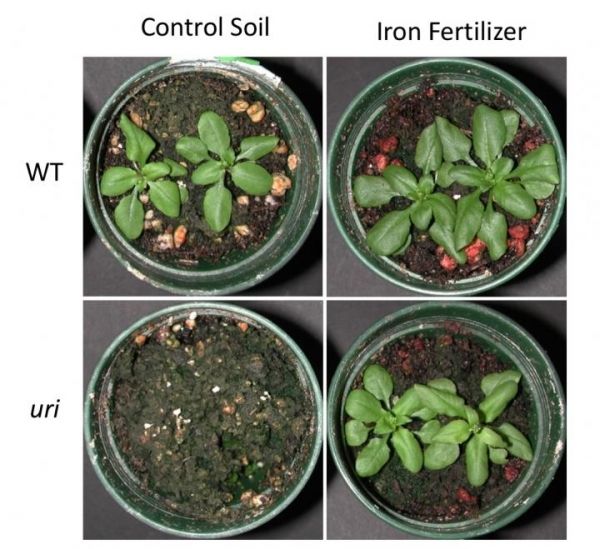Researchers have discovered a gene that controls the regulation of iron uptake in plants, according to a new study from Dartmouth College.
With over 2 billion people suffering from iron deficiency around the world, the discovery could be the key to increasing the iron potency of crops such as rice, wheat and cassava that form the staple diets of more than half the world’s population.
The gene signals when plants should allow the transport of iron by toggling a genetic pathway that includes hundreds of other genes.
The study, published in Proceedings of the National Academy of Sciences, is the latest in a decades-long series of research projects on iron transport and storage in plants from the Dartmouth team. The current research details the identification of the gene in plants and provides the first description of how it works to regulate iron uptake.
Read more at: Dartmouth College
Researchers studied iron uptake in Arabidopsis thaliana, both the wild type (WT) and with the URI gene mutated, to learn how plants bring in iron. The removal of the URI gene (lower left photo) prevents the uptake of iron and causes the plant to die. (Photo Credit: Sun A Kim)


